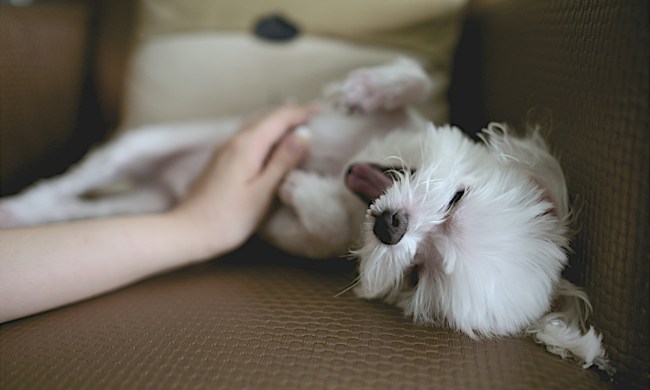When pet parents-to-be consider different dog breeds, they’ll often look for a certain image, personality, or temperament. It’s common to want a calm dog, or one who’s easy to train, though this can be an especially vital quality for less experienced dog owners. You’ll both be learning, after all.
Remember not to assume anything based on a breed’s size or look — some of the easiest dog breeds to train are actually the largest. You never know what you’ll learn, so grab your coffee and read on. These are the calmest, easiest breeds to train, from the smallest schnauzer to the largest Bernese mountain dog.
Which dog breed is the calmest?

Despite what you may think, the calmest dog isn’t defined by its breed. Whether large, small, or anywhere in between, a pup will be a lot calmer when they get enough physical exercise and mental stimulation. Still, some dogs are more instinctually and genetically inclined to rest more often than they run and play, according to the American Kennel Club (AKC). The list couldn’t possibly be narrowed down to one “calmest” dog breed, as many are renowned for their lower activity levels. They include:
- Tibetan spaniel
- Cavalier King Charles spaniel
- Boerboel, a mastiff-like breed
- Irish and Scottish wolfhounds
- Bergamasco sheepdog
- Basset hound
- Clumber spaniel
- Pekingese
- Saint Bernard
It’s important to remember that a calm breed doesn’t necessarily mean they’re also easy to train, though you may see some overlap. Certain breeds also have health concerns or grooming needs, too, so you should consider more than energy levels before adding a new pet to your family.
What are the easiest breeds to train?
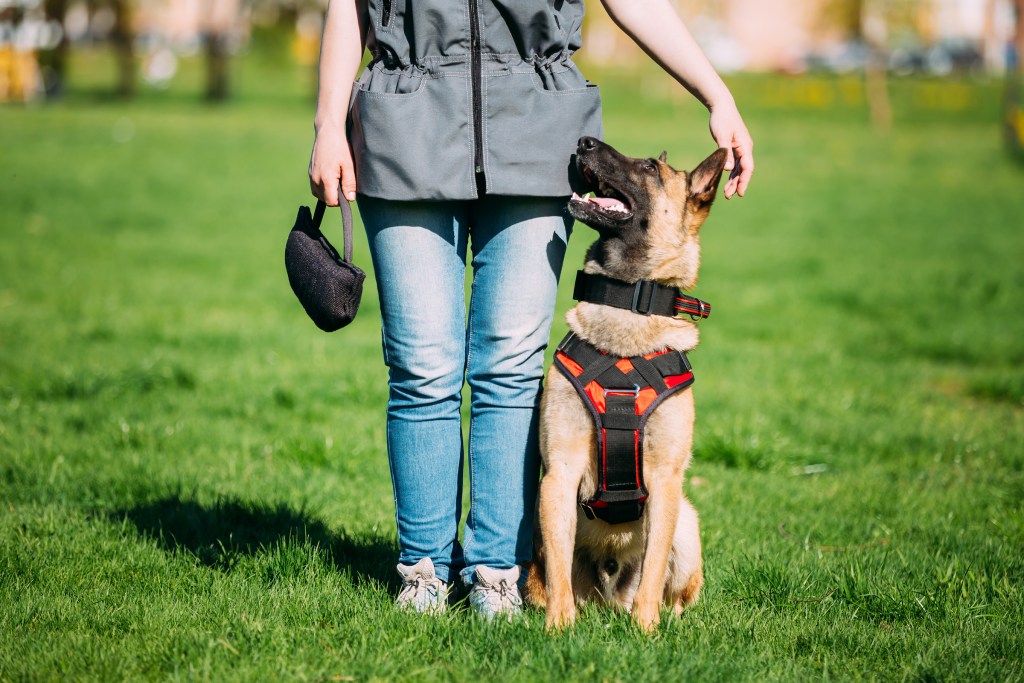
Even though calm doesn’t always mean easy to train, many pups fit well enough into both categories to be adaptable to a number of lifestyles. Still, some are known specifically for their training success, including these eight impressive breeds.
1. Border collie

Although this breed is known for their hardworking attitude, they’re even more well-known for their intelligence. The AKC lists border collies as the number one most trainable breed due to their fast-learning, eager-to-please demeanor. At the end of a hard day’s work, a tired-out border collie can be a calm companion, too.
2. Bernese mountain dog
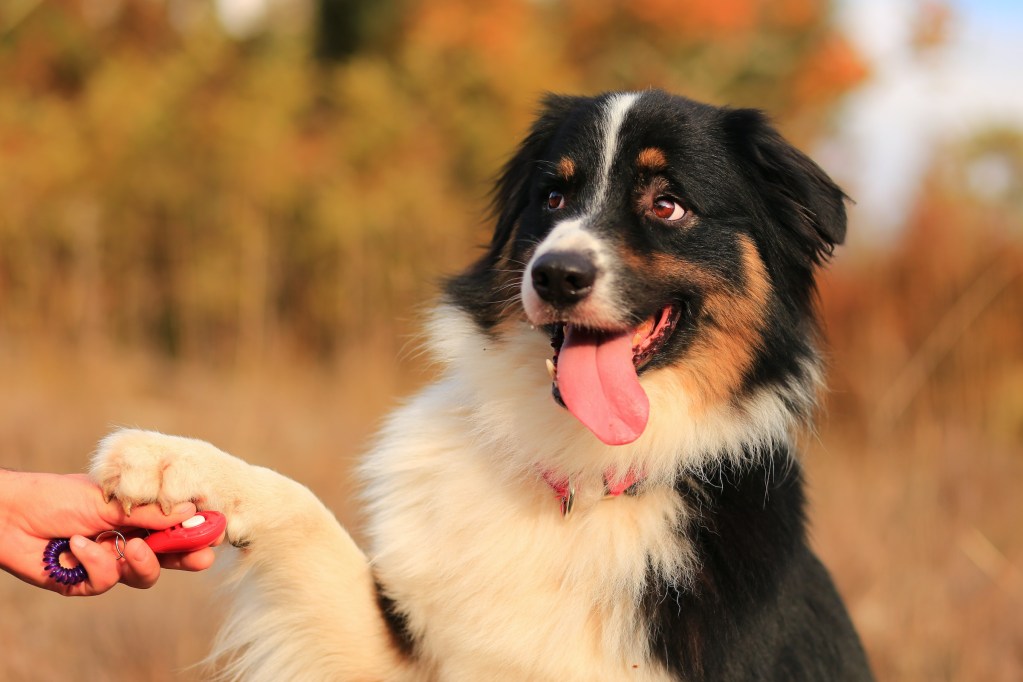
Don’t let their size fool you — these gentle giants are sweet, family-oriented creatures who are even prone to shyness. Berners can be especially eager to participate in training due to their instinctual desire to work, though you’ll often find them “gentle, easygoing, and tolerant.”
3. Poodle
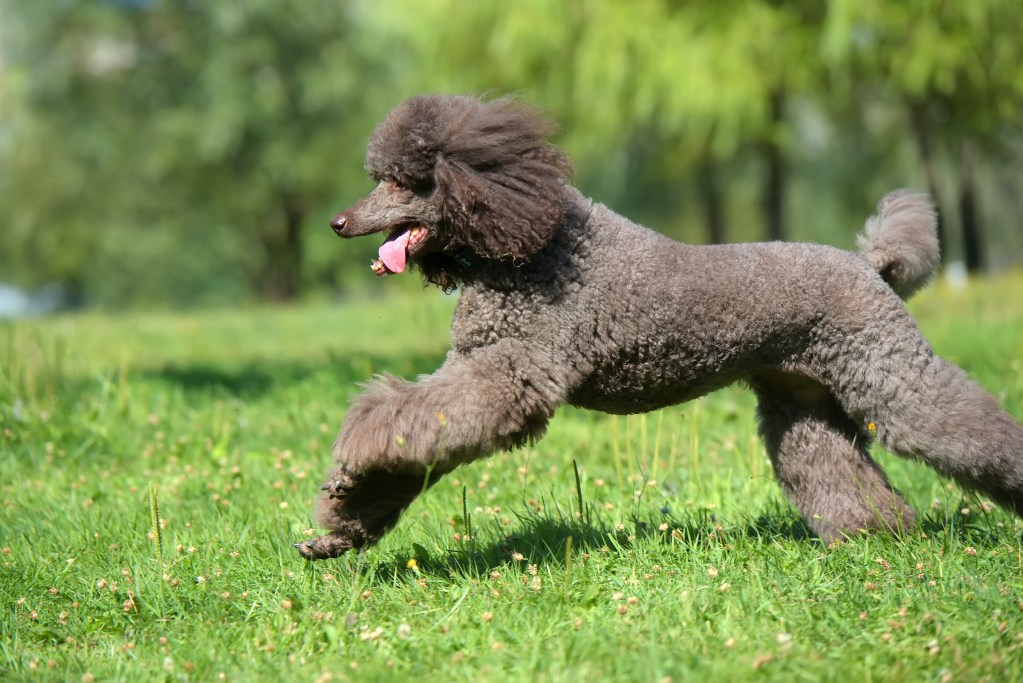
These curly-coated cuties are just as smart as they are beautiful. Not only do they have a higher need for stimulation (which training can provide), but they can be versatile, athletic, and super responsive to reward, according to the AKC. This applies to standard, miniature, and toy poodles.
4. Golden retriever

With an appropriately dazzling reputation, golden retrievers are one of the most popular family dogs for lots of reasons. They are smart, observant, and highly motivated to please their owners — it’s no wonder why they’re one of the easiest breeds to train. Just ask Streak! This golden was the winner of the 2018 AKC National Obedience Championship, proving that this breed can do it all.
5. Miniature schnauzer

Unlike most terriers who are famously difficult to train, schnauzers can be more friendly and obedient. Still, according to the AKC, these pups can have the terriers’ fiery personality, too, so remember to keep training short and non-repetitive.
6. German shepherd

Here’s a great example of a breed that may be easy to train but will likely not fit the description of “calm.” Not only do larger dogs require more space and exercise than smaller furry friends, but herding dogs like the German shepherd need a regular job to do, too, according to the AKC. When satisfied, though, these pups can also make great nap buddies.
7. Shetland sheepdog

Dog Behavior Consultant Michele Welton praises this breed’s quick reflexes, noting that they are “exceptionally attentive and responsive.” The key to successful training is calmness when interacting with this breed, as they can become easily discouraged with harsh corrections.
8. Labrador retriever
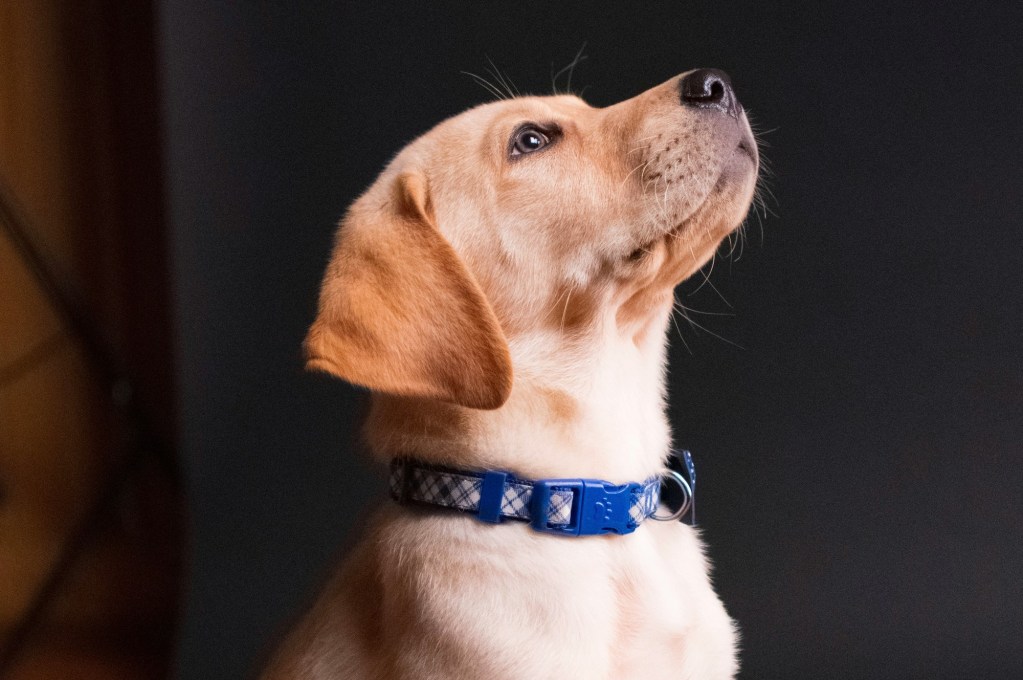
These popular family dogs make ideal training companions for many reasons. Otter Tail Kennels sums it up nicely by describing this breed as even-tempered, smart, and highly motivated to retrieve and work. Labs can also be incredibly food-motivated, which means you’ll always have a way to entice them (or even trick them) into practicing their training.
Qualities to look for in a trainable dog

Whether you search for a specific breed or are browsing your local shelter with an open mind, you may want to look for certain qualities in your new BFF. Finding a food-motivated pup can make training easier in some regards, and so can a dog who loves praise. No matter who you adopt, though, training often comes easier as you and your dog build a closer bond.
Distractable dogs may need some extra time and patience in order to catch on, but sometimes, leaving a chaotic environment like a shelter or breeder’s home can make a world of difference. If a dog is already calm and focused while in the shelter, it’s safe to say that they’re already on the right track. Any dog can be trainable, but each dog is on their own journey.
Final thoughts on trainable breeds
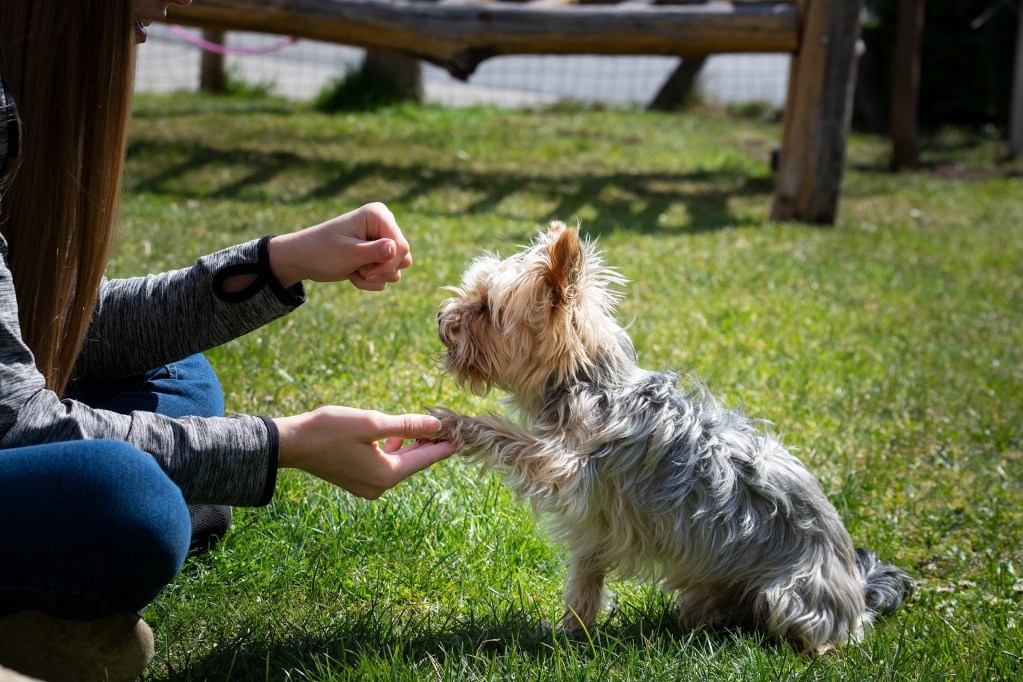
Remember, just because a breed isn’t on this list doesn’t mean they won’t be a calm or easy-to-train dog. The breed is only one of many factors that determine a pup’s personality. With the right amount of love and training, however, a dog of any breed has the potential to be the best-behaved buddy on the block.


